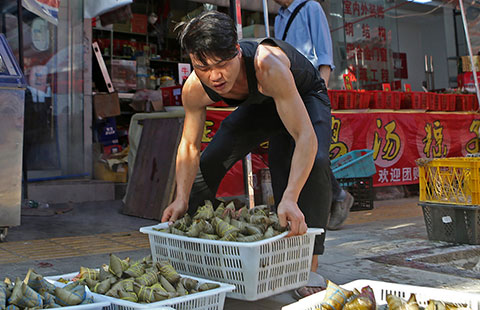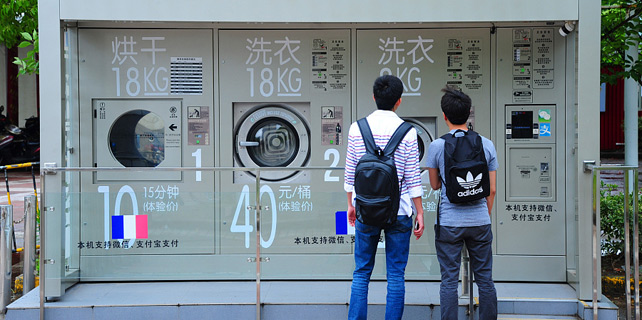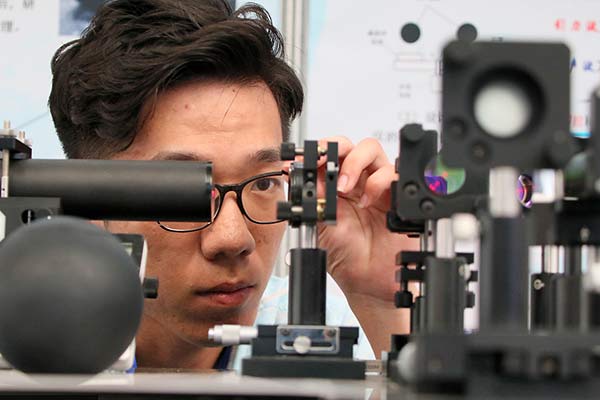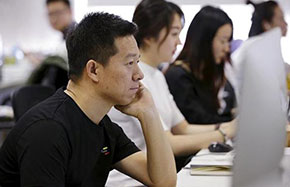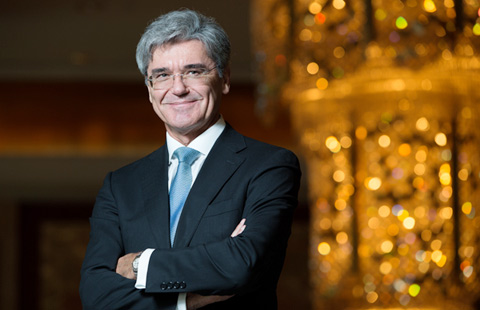China contributes to Cuba's development of alternative sources of energy
CIRO REDONDO, Cuba — Sugar cane has long been Cuba's cash crop, with the country becoming the largest sugar producer in the world and using it to bankroll its economy stretching back to the 19th century.
However, a deep economic crisis after the collapse of the Soviet Union in the early 1990s caused the Cuban sugar industry to lose its main market, with many mills slowly falling into obsolescence.
Years later, Cuba has a restructured industry adapted to its economic and production possibilities, and the Caribbean nation is seeking new alternatives for the sugar industry to be less reliant on fossil fuels to generate electricity.
The island now plans to produce 24 percent of its electricity by 2030 from renewable and clean energies.
In this sense, the island's sugar mills will begin to play an essential role in helping the country achieve energy independence.
In the coming years, 25 bioelectric plants with Chinese technology will be built throughout the country. These will process biomass from the industry during the sugar harvest and Marabou weed, a plant that proliferates in Cuban fields, for the rest of the year.
"This program consists of generating electricity for the sugar mills and the country with the leftovers of sugar cane or what we call biomass. It is a clean source of energy and part of the national renewable energy program," Francisco Lleo, CEO of ZERUS, a state company in charge of the project, told Xinhua.
A few weeks ago, the first stone was placed on what will become a modern bioelectric plant next to the Ciro Redondo sugar mill, one of the largest in the island located in Ciego de Avila, about 450 kilometers east of Havana.
It will feature state-of-the-art technology from Shanghai Electric Group Co Ltd and will be built by the British-Cuban joint venture, Biopower S A, which will also build four more plants of this kind.
"We attach great importance to the Cuban market. Renewable energy is one of the directions we are committed to and Cuba, with its special geographical and natural environment, offers great opportunity to the development of renewable energy," Qin Yi, executive director of Shanghai Electric Group Co Ltd, told Xinhua.
The Chinese firm will be in charge of installing the technological and industrial equipment that will process the sugar cane or Marabou biomass to generate electricity, not only for the plant but also for the Cuban electrical system.
"Electricity generation through biofuels not only protects the environment, but also helps the economic development in Cuba, not to mention the fact that it will provide the town where the factory is with many jobs and the possibility for development," said Qin.
This is an alternative energy which is gaining ground around the world, particularly in countries that produce sugar, soy or corn.
"During the sugar harvest, we will deliver 32 megawatts to the national electrical system. Once it concludes, we will be generating more than 50 mW. It is a considerable amount of energy and comparable with the use of the whole province on a daily basis," Carmen Toboada, vice president of Biopower S A, told Xinhua.
According to the official, the plant will have a positive environmental impact as it will stop using fuel to generate electricity and clear thousands of hectares of Marabou to be planted with sugar cane or other crops.
For the community, this new facility will also bring numerous advantages as it will diversify available jobs, with the area being largely reliant on sugar cane plantations and the Ciro Redondo sugar production mill.
"It will be a source of jobs with good salaries for the community around the plant. There will be about 50 employees in the bioelectric plants and about 10 groups of five farmers dedicated to clearing out Marabou," added Taboada.
The gradual implementation of this type of technology also allows Cuba to boost foreign investment in the sector, not only for the generation of electricity but to increase sugar production.
"One of the objectives of the industry is to guarantee renewable energies for sugar production. That is why we are looking for foreign partners to strengthen this plan in the coming years," Camilo Hernandez, external finance director of the Azcuba business group, told Xinhua.
The entity, which replaced the Ministry of Sugar in 2011, is responsible for the production of sugar and its derivatives on the island, as well as the generation of electricity for the sector.
"We are looking for partners who will participate together with Azcuba for the integral development and modernization of our industry, because we have very old plants that need to be upgraded," explained Hernandez.
The Cuban official said there are 56 investment projects with renewable energies, one for each active mill in the country, and 25 of these include bioelectric plants.
"The objective is to cover 24 percent of the country's energy production by 2030 with renewable energies and 14 percent of it will be produced from sugar biomass," he said.
With the program to build bioelectric plants next to Cuban sugar mills, Havana will save about 960,000 metric tons of fuel per year and avoid the emission of 3.65 million tons of carbon dioxide per year by 2030, according to official figures.






